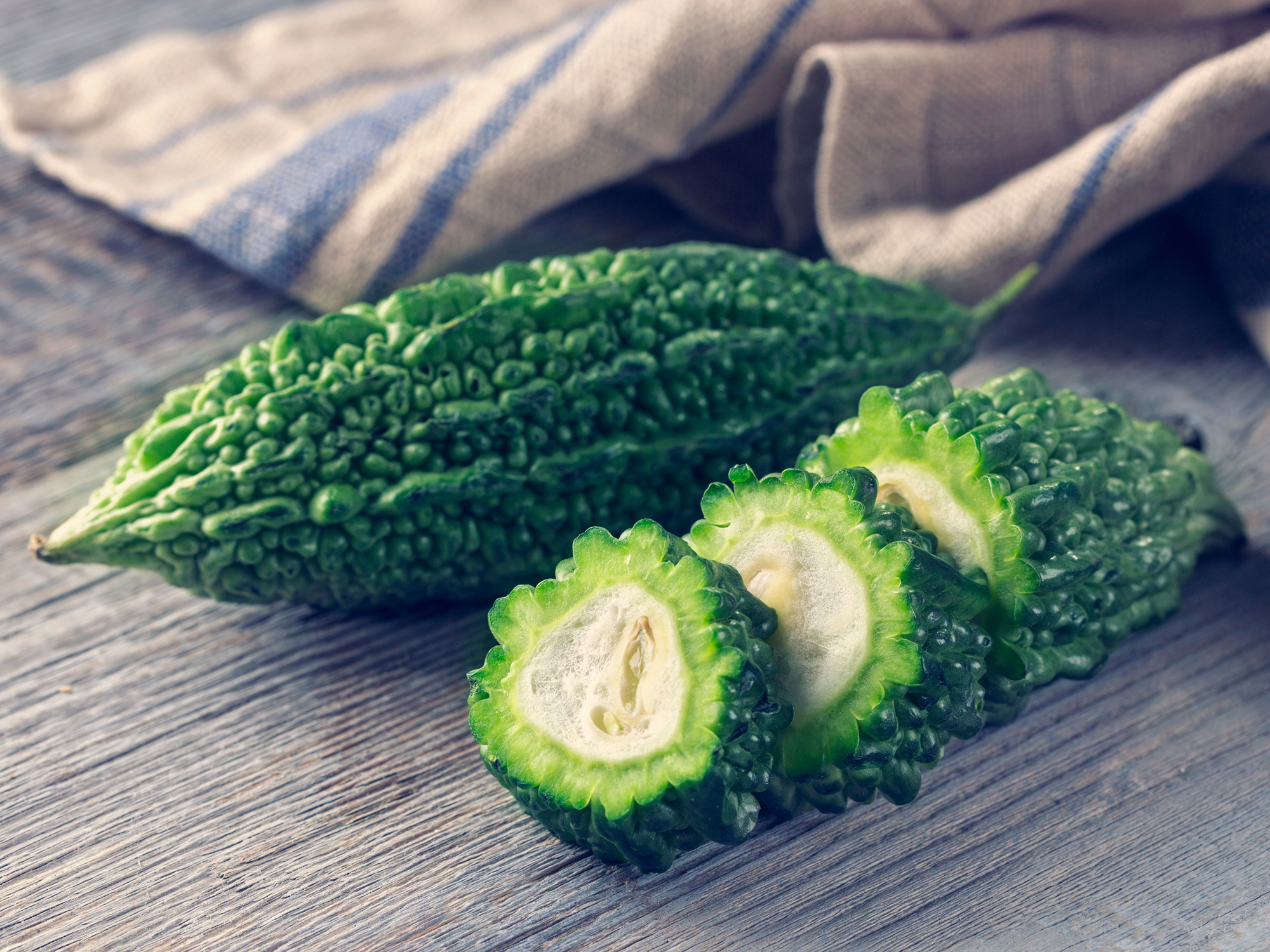Get Easy Health Digest™ in your inbox and don’t miss a thing when you subscribe today. Plus, get the free bonus report, Mother Nature’s Tips, Tricks and Remedies for Cholesterol, Blood Pressure & Blood Sugar as my way of saying welcome to the community!
Bitter melon for better blood sugar

If you have type 2 diabetes, you’ll understand it can be a challenging condition to manage.
Due to the metabolic alterations that have occurred in your body, it’s not only blood sugar levels that can be a problem, but weight, cholesterol, inflammation and blood pressure can also be coinciding problems, too.
Although there is no “cure,” there are some nutraceuticals that bestow almost miraculous powers to help restore the balance of your metabolism.
And one such nutraceutical is bitter melon…
Bitter melon is also known by several other names — bitter squash, bitter gourd, bitter apple, and it’s botanical name momordica charantia.
And with more than 32 known beneficial phytochemicals, this unusual-looking fruit is now becoming increasingly popular as a potential treatment for balancing blood sugar levels…
Lower blood sugar levels and A1c
When diabetic patients were given either 2 or 4 grams of bitter melon over 10 weeks, hemoglobin A1c levels reduced by 0.85 percent in the group taking 2 grams, and 1.15 percent in the group taking 4 grams.
Fasting blood glucose also reduced by an average 15 mg/dl for both groups.
Battle the bulge
These same two groups also showed a significant amount of weight loss over the 10 weeks of supplementing with bitter melon…
Those taking 2 grams per day lost 4.07 pounds and those taking 4 grams lost 6.83 pounds!
Additionally, researchers discovered that bitter melon is especially effective at fighting visceral belly fat — the type of fat that produces dangerous pro-inflammatory molecules that make your health decline faster.
Improve the function of insulin
Bitter melon contains compounds called triterpenes that act as insulin sensitizers.
This is great news because insulin resistance is one of the major factors that prevents your body from using glucose effectively.
On top of sensitizing your cells, bitter melon also acts as an insulin substitute, helping to clear more glucose out of the bloodstream. And it also helps enhance the function of the pancreas — the organ that produces insulin.
Improve liver function
One organ that doesn’t get talked about enough with diabetes is the liver.
Your liver is strongly involved in insulin sensitivity, cholesterol regulation, blood sugar regulation, inflammation control and detoxification.
And thankfully, bitter melon also shines in its ability to improve liver function…
Due to bitter melon’s potent antioxidant capacity, it knocks down the inflammation abomination, helps normalize all the important liver enzymes that help regulate metabolism, improves liver insulin sensitivity and helps balance cholesterol levels.
According to research, the recommended dosage for bitter melon ranges from 1 to 3 grams per day, which is best taken via several smaller doses throughout the day.
Since bitter melon is a blood sugar-lowering agent, you should check with your doctor if you’re taking medications that already lower blood sugar.
Editor’s note: Are you feeling unusually tired? You may think this is normal aging, but the problem could be your master hormone. When it’s not working, your risk of age-related diseases skyrockets. To reset what many call “the trigger for all disease” and live better, longer, click here to discover The Insulin Factor: How to Repair Your Body’s Master Controller and Conquer Chronic Disease!
Sources:
- Chang CI, et al. Bitter melon triterpenes work as insulin sensitizers and insulin substitutes in insulin-resistant cells. — Journal of Functional Foods. 2015;13:214-224.
- Rahman IU, et al. Lower hypoglycemic but higher antiatherogenic effects of bitter melon than glibenclamide in type 2 diabetic patients. — Nutr J. 2015 Jan 26;14:13.
- Alam AM, et al. Beneficial Role of Bitter Melon Supplementation in Obesity and Related Complications in Metabolic Syndrome. — J Lipids. 2015; 2015: 496169.













